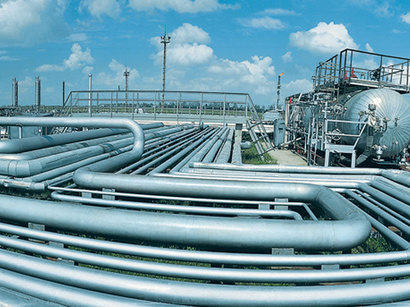Europe still pushes Trans-Caspian Pipeline

By Gunay Camal
The Trans-Caspian Pipeline Project (TCP), a much desired pipeline in the Eurasia contingent, seems to reoccupy the agenda of European policy-makers as well as global energy companies as its participant-states expected to meet to accomplish the project realization.
The subsea pipeline project, envisaging the Turkmen gas delivery through the Caspian Sea to Turkey and further to European countries, is expected to be mulled during the summit of heads of the states of Turkmenistan, Azerbaijan and Turkey by late 2016, Trend reported citing a source close to the talks.
Baku, Ashgabat and Ankara are periodically discussing an opportunity of supplying the Turkmen gas to Europe, and the matter rests in the ways of implementing the project of laying the Trans-Caspian gas pipeline to the coast of Azerbaijan, which will deliver it further to Turkey.
Turkmenistan is home to the world's fourth-largest reserves of natural gas, making it an enticing source of gas for the Old Continent that is in search of alternative supplies to Russian gas.
The EU has long ago recognized the geopolitical importance of the Caspian region, thus assessing Azerbaijan and Turkmenistan as a strategic corridor linking itself with the Caucasus and Central Asia. While acknowledging the hydrocarbon potential of the Caspian basin, Europe also realized that the region could allow to secure its future energy supplies.
Brussels has already secured gas supplies from Azerbaijan thus gaining access to the Caspian Sea’s energy deposits and decreasing Europe’s reliance on Russian energy imports. Furthermore, it launched direct talks with Baku, Ashgabat and Ankara on the TCP that will provide the flow of substantial energy supplies from the Caspian basin to the European market.
The European Commission is still committed to realizing the Ashgabat Declaration of 2015 on cooperation in the energy sector with Azerbaijan, Turkmenistan and Turkey, a source in the European Commission told Trend on July 27.
Earlier, a working group was established on the basis of this declaration at the level of deputy ministers to address the organizational, legal, commercial, technical and other matters to ensure the supply of Turkmen gas to Europe.
"As I understand, there is an intention to hold another meeting of the working group in the current year,” the source said, adding that however, the date of the next meeting of the working group has not yet been determined.
The TCP could be joined to the European Union and Azerbaijan's Southern Gas Corridor, meant to transport natural gas from the Caspian area to Europe, bypassing Russian territory and natural gas supplies.
Turkmenistan’s strategic long term objective is to export available large volumes of gas to the EU. Ashgabat is interested in the different routes of its gas export, including the ongoing TAPI gas pipeline project and the TCP.
Gas can be exported via the Trans-Caspian gas pipeline from the western area of the country and via the Turkmenistan-Afghanistan-Pakistan-India pipeline from the eastern area, while the TCP is named as the best route for this supply.
In November 2014, Turkmenistan took a step to reach this goal by signing a framework agreement with Turkey to supply gas. Later in May 2015, Turkmenistan, Azerbaijan and Turkey have signed a declaration with the European Union in the energy sphere.
Realization of the TCP could deepen the energy relations between Azerbaijan, Georgia, Turkmenistan, Turkey and EU.
Nonetheless, the Caspian Sea status and position of Iran and Russia remain the main obstacles to the project realization. The flow of Caspian gas supplies to Europe would harm the plans of Russia, which owns a lion’s share in the EU natural gas market, and Iran, which owns the world’s second largest natural gas reserves, has improved ties with the West and seeks to supply its gas to the European customers.
Also, Moscow and Ankara sent signals that they may realize the Turkish Stream project, a pipeline to Turkey with potential control of a gas hub at the Turkish-Greek border for sales to Europe.
In light of the current global financial situation along with low oil and gas prices and geopolitical developments, it is hard to predict how the Turkmen gas will be a new gas source for the EU in the near future.
--
Follow us on Twitter @AzerNewsAz
